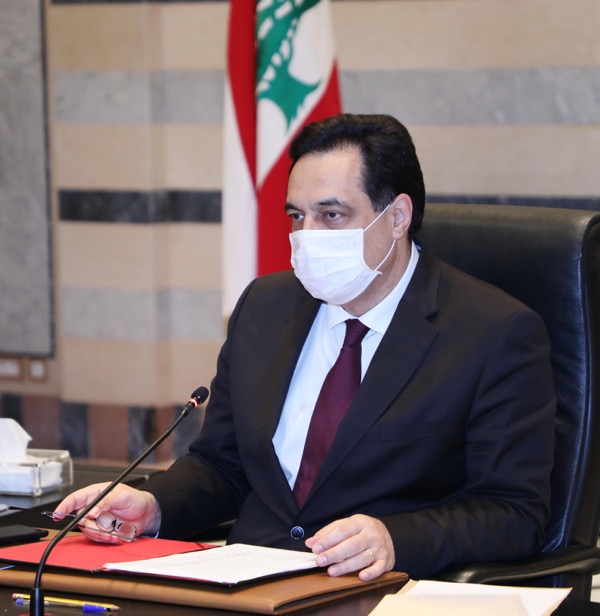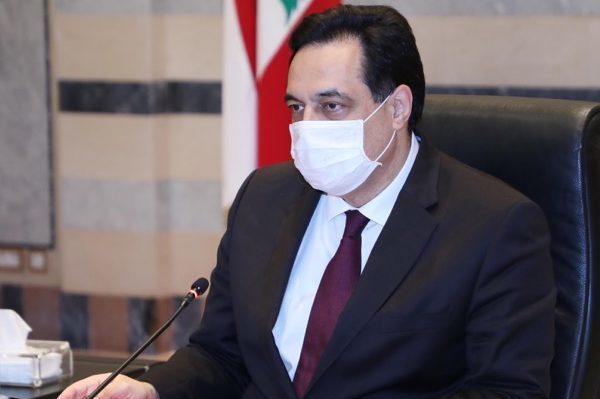BEIRUT – With a rescue plan that will form the basis of talks for IMF aid finally in place, Lebanon must now enact painful steps and work out how it distributes the costs, with the country’s banks likely to be particularly hard hit.

The Lebanese government signed a request for assistance from the International Monetary Fund (IMF) on Friday in what Prime Minister Hassan Diab’s office described as “a historic moment in the history of Lebanon”.
Although economists and diplomats welcomed the plan as a critical first step, many were sceptical that ambitious proposals to cut public sector spending and overhaul the banking sector could be enacted after years of political wrangling.
“This means the onset of serious negotiations with the IMF so this is very important and good news because it removes a lot of uncertainty. Having said that, the issue in Lebanon has always been one of execution,” ex-economy minister Nasser Saidi said of the 53-page plan passed on Thursday.
The plan sets out tens of billions of dollars in financial system losses and tough measures to claw Lebanon out of a crisis that has seen its currency crash, unemployment soar, the country default on its sovereign debt and protests on the streets.
“We have taken the first step on the path of saving Lebanon from the deep financial gap; and it would be difficult to get out of it without efficient and impactful help,” Diab’s office said in Friday’s statement.
A rapid slide in the Lebanese pound, which has lost more than half its value since October, has sparked renewed unrest, with a demonstrator killed in riots targeting banks that have frozen savers out of U.S. dollar deposits.
Beirut hopes that with an IMF programme in hand, foreign donors will release about $11 billion pledged at a Paris conference in 2018 which was tied to long-stalled reforms.
“Implementation is the hard bit, and Lebanon has consistently failed on this. Progress will only be possible with that, on the basis of greater political and public consensus,” a Western diplomat told Reuters.
The plan, which calls for an additional $10 billion in external support over five years, also forms the backbone of talks with foreign bondholders that have yet to start and several Lebanese dollar bonds notched up their best daily gains on Friday in more than a month.
Lebanon said in March that it was defaulting on Eurobonds totalling $31 billion to preserve cash for vital imports.
“In large part its a big PR move for the government as there was a feeling that the government was starting to lose control of the narrative. This plan shows they’re really trying to work towards something,” Nafez Zouk, emerging markets strategist at Oxford Economics, said.
BLOW TO BANKS
A central plank of the plan is imposing financial sector losses of roughly $70 billion, which will be covered in part by a shareholder bail-in and cash taken from large depositors.
With measures such as recovering stolen assets abroad, this could take years while some economists say the plan places too heavy a burden on a banking sector that has helped finance decades of large state budget deficits.
“This is basically a takeover of the banking sector by the state. I don’t understand how this will restore confidence,” said Nassib Ghobril, chief economist at Byblos Bank. “When you go this way, where is lending going to come from?”
Marwan Mikhael, head of research at Blominvest Bank, said it was unfair to make banks pay such a high cost for years of government borrowing that led to the default and broader crisis.
“The government doesn’t have the money to bail out the banks … so here they want the banks to rescue the government.”
(Reuters)


Leave a Reply
You must be logged in to post a comment.